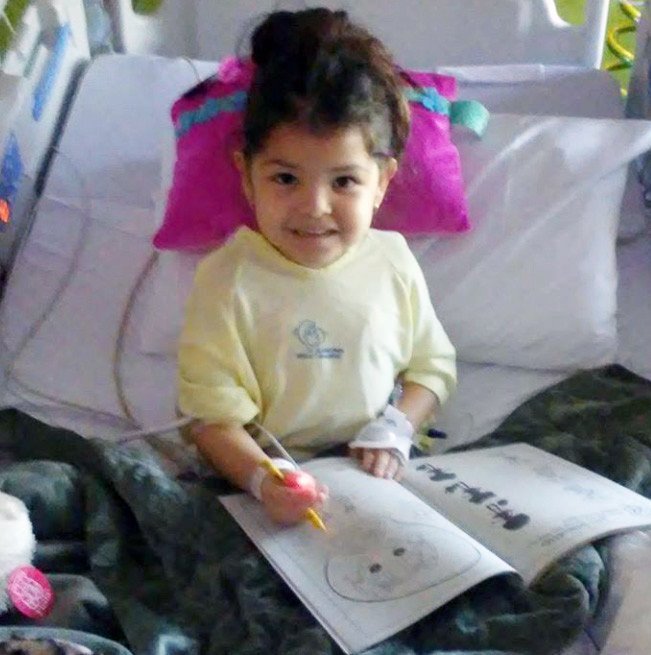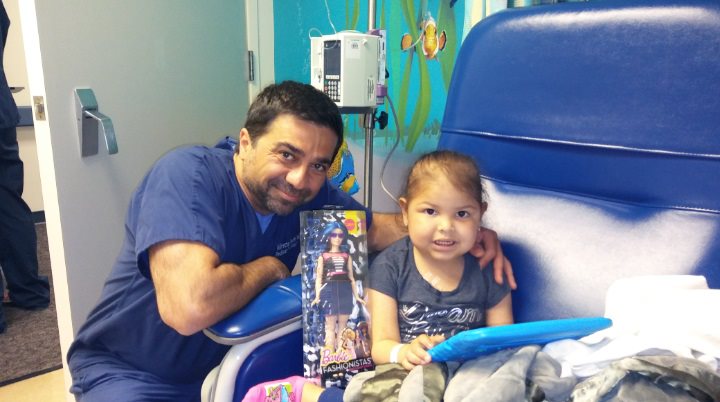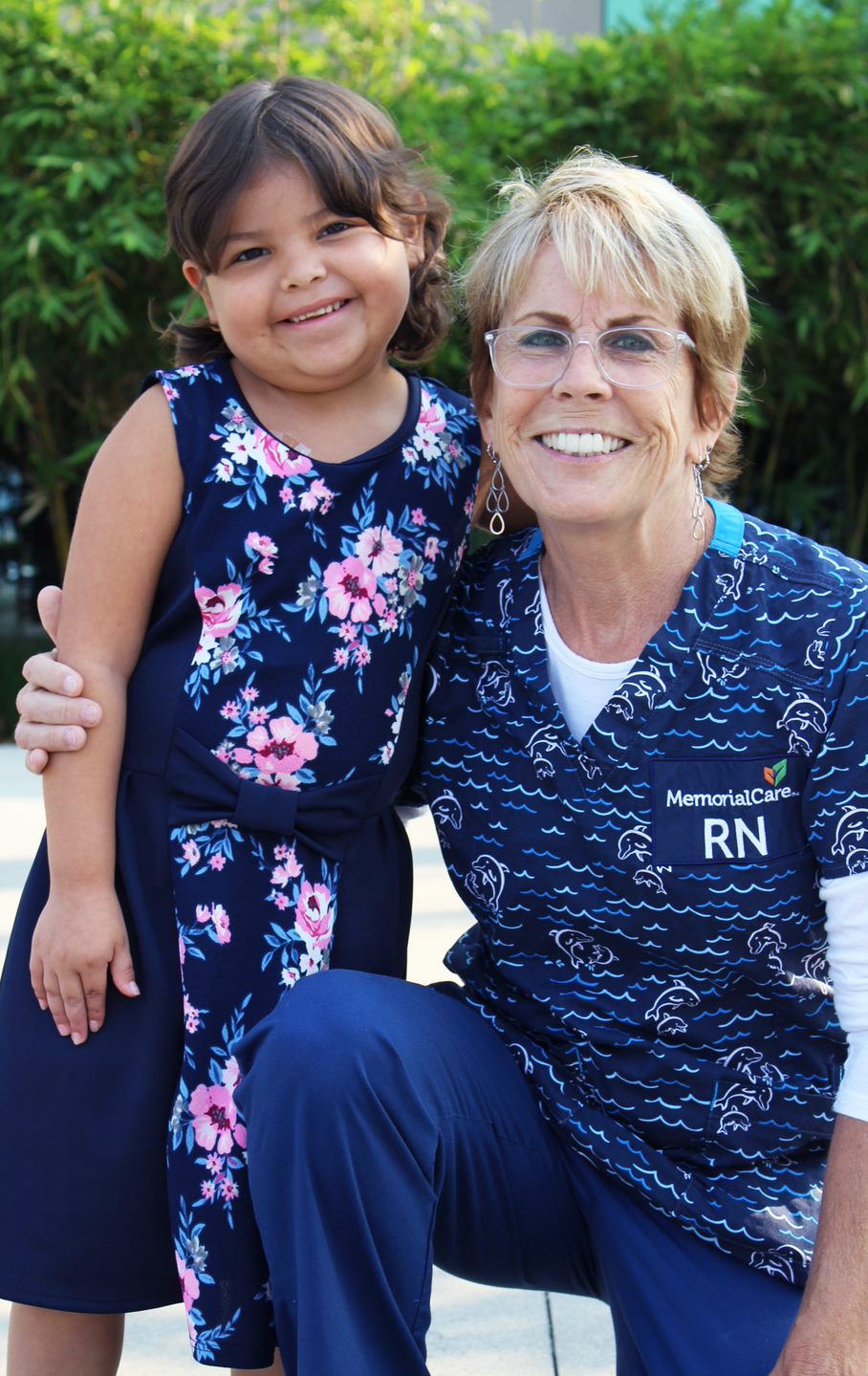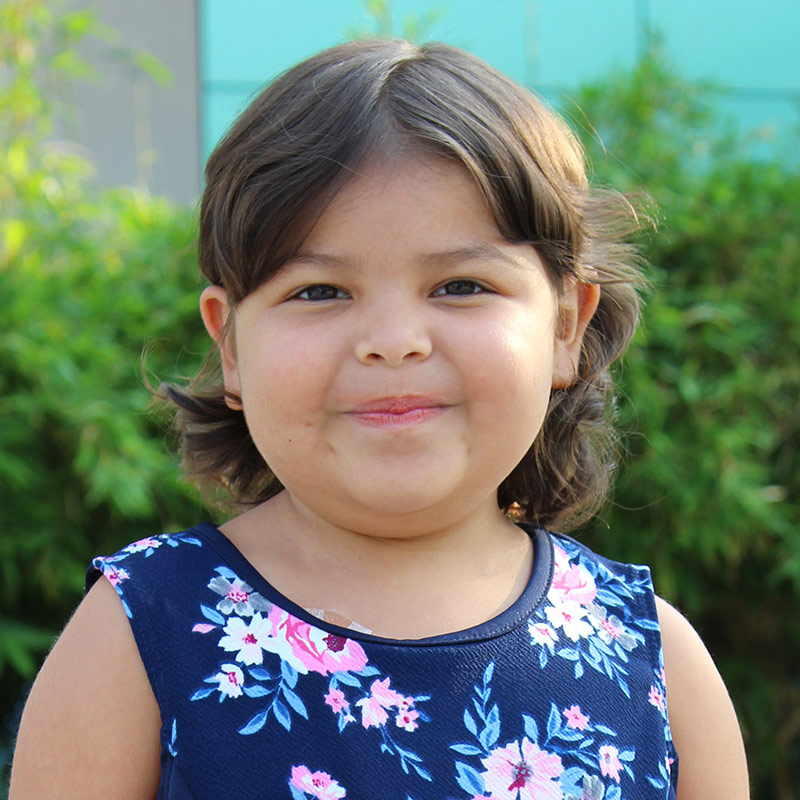 “Your daughter has leukemia.”
“Your daughter has leukemia.”
The words hit Dora like a semi-truck. She looked at her little 5-year-old daughter, Olivia, sitting in the hospital bed.
Olivia watched her mom talking to the doctor, sucking her two little fingers, clutching her green security blanket and rubbing the blanket’s silk edges against her cheek.
Olivia listened as Alireza Fathi, M.D., MBA, FAAP, medical director, Miller Children’s & Women’s Transport Program, MemorialCare Miller Children’s & Women’s Hospital Long Beach, talked and comforted Dora.
Olivia’s official diagnosis was acute lymphoblastic leukemia (ALL), cancer that starts from the early version of white blood cells called lymphocytes in the bone marrow — the soft inner part of the bones, where new blood cells are made. Dr. Fathi explained that “acute” meant that leukemia can progress quickly as leukemia cells usually invade the blood fairly fast. Their fast-moving nature means that they can spread to other parts of the body rapidly if not treated.
A Long Time Coming
Days leading up to Olivia’s hospitalization, she seemed to be experiencing flu symptoms. She had a fever, no energy, no appetite and a headache. Then, without warning, on Tuesday, Dec. 26, 2016, she collapsed and her lips turned blue. Once she woke up, Olivia threw up and told her mom her legs “felt dizzy.”
Dora rushed Olivia to urgent care. They tried taking her blood, but something was wrong. They pricked her finger, her blood looked watery. Dora was urged to take Olivia to the emergency department at Miller Children’s & Women’s. She was given a referral form, among the scrawly writing were the numbers “2.3” — what did that mean?

Olivia was admitted to the Cherese Mari Laulhere Pediatric Intensive Care Unit (PICU) where they learned about her diagnosis and met Dr. Fathi.
Dora learned that the “2.3” represented Olivia’s hemoglobin and that it was dangerously low. As is the nature of ALL, Olivia’s hemoglobin count declined fast. Just six months ago at her wellness checkup, Olivia’s hemoglobin was recorded at a healthy 13.2.
Dr. Fathi explained that by all accounts, Olivia should have fallen into a coma or at the very least had convulsions, but that her little body was already putting up a fight. Dr. Fathi prepared Dora and Olivia, letting them know that cancer treatment would be a long journey, but Olivia’s care team would be by their side through it all.
After three days in PICU, Olivia was transferred to the Jonathan Jaques Children’s Cancer Institute where her multi-disciplinary care team expanded.
An implantable port, referred to as a port-a-cath, was placed in Olivia’s chest to help her receive her medicines and treatments. One end of a thin tube is put into a large vein, while the other end leads to a small rubber dome, or portal (port), just under the skin.
Together We’ll Carry On
Cancer turned Olivia and her family’s life upside-down. In a matter of days, Olivia went from starting transitional Kindergarten to fighting cancer. She went from adjusting to school, to adjusting to life with ALL.
The total length of therapy for most kids with ALL is about two to three years. Dora would work closely with the care team in the days that followed to learn about ALL and Olivia’s treatments. On Tuesday, Jan. 3, Olivia was cleared to begin at-home treatment and discharged from the hospital.

Two days after returning home, Olivia began her regular visits to the Nightengales’ Infusion Center at Miller Children’s & Women’s where children who need intravenous (IV) therapy are cared for. The majority of patients treated in the Infusion Center have cancer or other serious blood disorders.
Thanks to her regular visits, Olivia made best friends with Alice Appleyard, RN.
“The procedures completed at the Infusion Center can be really tough for our kids,” says Alice. “But Olivia comes in here and is a ray of sunshine. She’s a strong kid and her source of strength comes from her mom.”
Through it all, good days and bad, Olivia approaches her therapy with a smile and tries to make the most of her experience.
Today, Olivia is back at school, has graduated from Kindergarten and has made new friends. Olivia is completing maintenance therapy and is on track to complete her treatment in early 2019.

